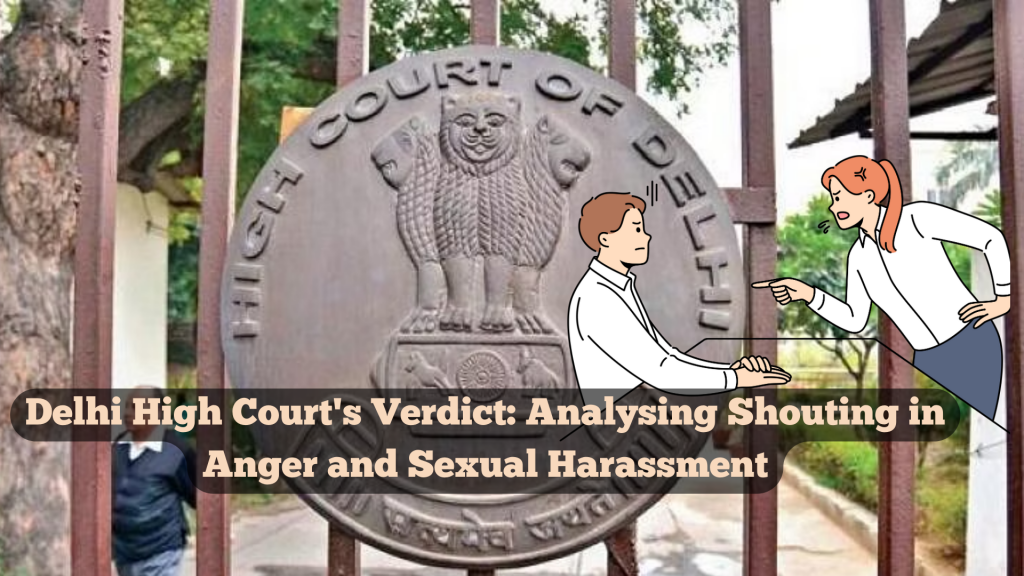
New Delhi High Court’s Verdict on Bias and the Role of Internal Committees
Judgement Given On : 27/08/2018
Introduction
In a pivotal case that delved into issues of potential bias within Internal Committees (IC) and adherence to regulations governing sexual harassment complaints, the New Delhi High Court rendered its judgment in “Somaya Gupta vs. Jawaharlal Nehru University and Others” on August 27, 2018. This case sheds light on the delicate balance between addressing concerns of bias while ensuring a fair and effective inquiry process.
The Context
The central question before the court was whether the constitution of the IC could be challenged on grounds of bias. The petitioner, Somaya Gupta, raised concerns about the perceived bias of the IC, as it was composed of members from the Executive Committee of Jawaharlal Nehru University (JNU). Notably, this Executive Committee included individuals against whom the petitioner had filed a complaint of sexual harassment.
The Court’s Analysis
The New Delhi High Court scrutinized the composition of the IC and assessed the argument of potential bias meticulously:
Membership of the Executive Council:
The court noted that apart from the Vice-Chancellor and Rector-I, against whom allegations had been made, the Executive Council consisted of 19 other members who had participated in the meeting. Additionally, there were four special invitees. The court dismissed the claim that the IC would inherently be biased due to its composition by stating that mere apprehension in the petitioner’s mind was insufficient to establish bias.
Legal Precedent and Real Likelihood of Bias:
Referring to previous judgments, including “Kumaon Mandal Vikas Nigam Ltd. vs. Girja Shankar Pant,” the court emphasized that establishing a real possibility of prejudice was crucial. Mere suspicion or fear of bias would not be sufficient to remove a member from the IC.
Lack of Personal Interest:
The court observed that the petitioner had not alleged any pecuniary or personal interest on the part of IC members. Additionally, it pointed out that since the Presiding Officer of the IC had recused herself as a witness to the incident, there was no basis to suspect any personal interest conflicting with the obligation to conduct a fair inquiry.
Composition Contrary to Regulations:
The petitioner also argued that the IC’s composition was contrary to the University Grants Commission (Prevention, Prohibition, and Redressal of Sexual Harassment of Women Employees and Students in Higher Institutions) Regulations, 2015 (UGC Regulations). Specifically, the inclusion of the Chief Proctor, a senior administrative position, was challenged.
The Court’s Decision
Regarding the inclusion of the Chief Proctor in the IC, the court referred to Regulation 4(3) of the UGC Regulations, which stipulated that individuals in senior administrative positions, such as the Vice-Chancellor, Pro Vice-Chancellors, Rectors, Registrars, Deans, and Heads of Departments, should not be appointed as IC members to ensure autonomy. The court acknowledged the merit in the petitioner’s argument concerning the Chief Proctor’s position as a senior administrative role within the university.
It’s important to note that the court did not issue any specific directions, as the Chief Proctor had already recused from the proceedings. Moreover, the challenge to the validity of UGC Regulations and the constitution of the IC was pending before higher courts, with the Supreme Court directing the IC to continue its functions.
Conclusion
The New Delhi High Court’s ruling in the “Somaya Gupta vs. Jawaharlal Nehru University and Others” case underscores the need for a fair and unbiased inquiry process in cases of sexual harassment. While acknowledging concerns related to potential bias, the court reiterates the importance of establishing a real likelihood of prejudice rather than relying on mere suspicion. Additionally, the case highlights the significance of adhering to relevant regulations governing IC composition and functions, ensuring a just and equitable resolution to such sensitive matters.
